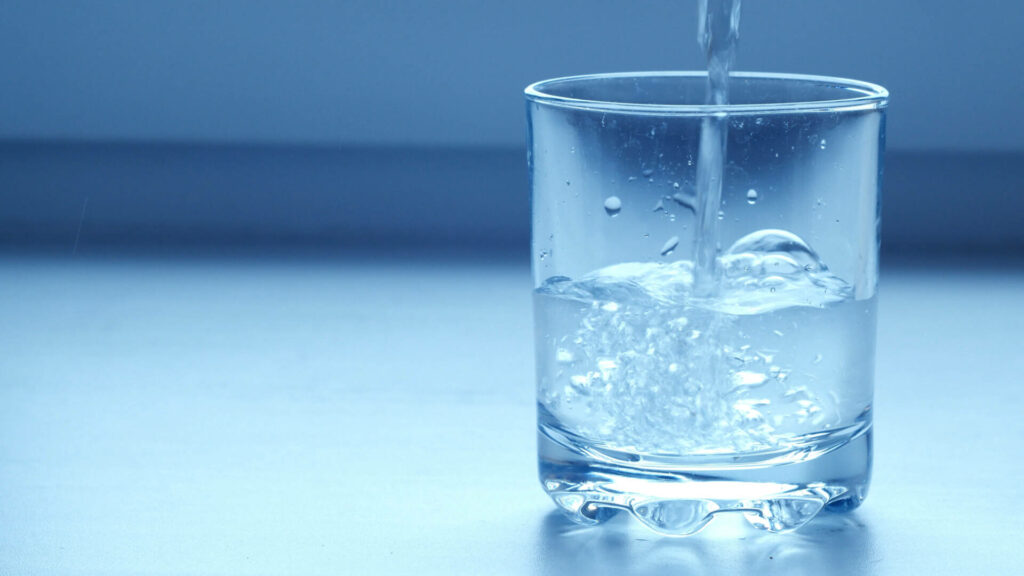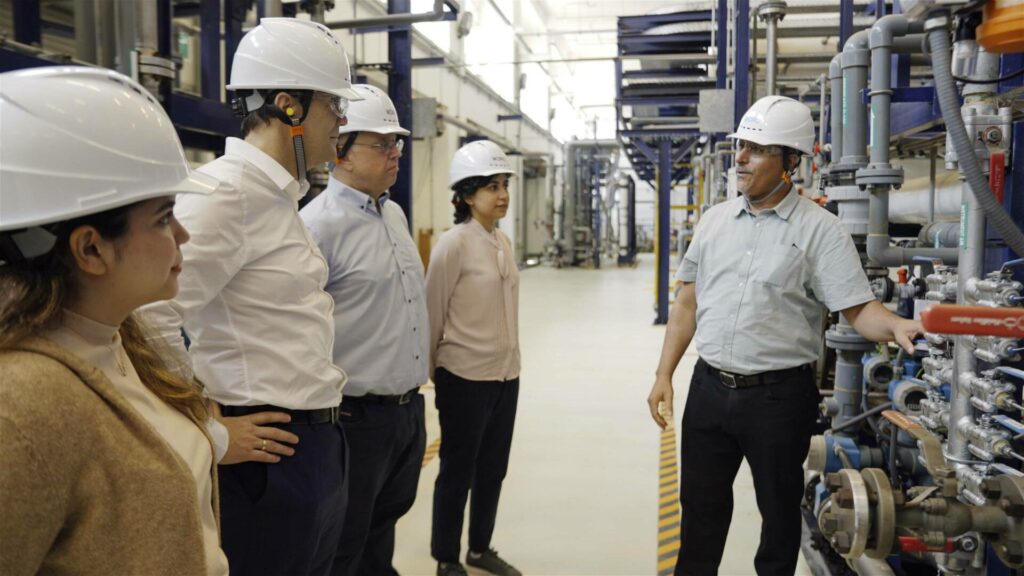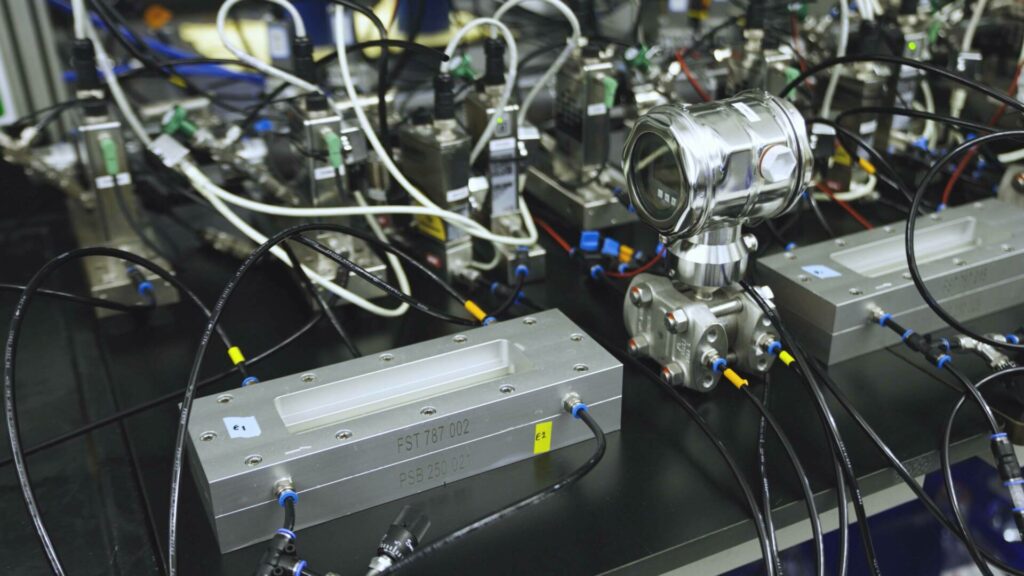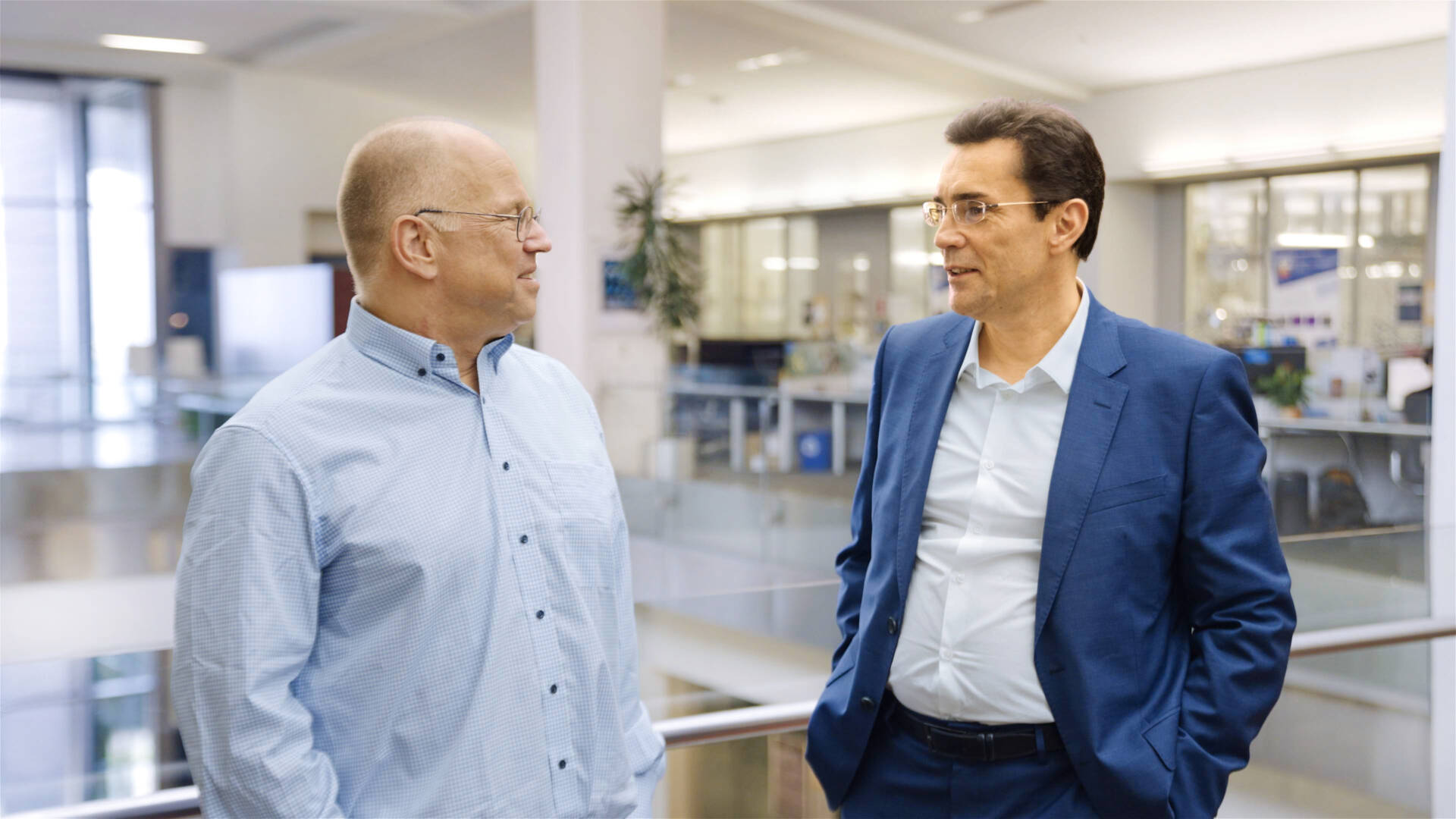The KAUST Insights for National Priorities series highlights some of the impactful collaborations between KAUST and its national partners to help realize the priorities of the Kingdom.
Improving the efficiency and sustainability of water desalination is critical to address global water scarcity.
Technological innovations being developed at KAUST with its industry collaborators aim to improve efficiency and sustainability of water desalination.
Seawater desalination is used extensively in the Middle East, accounting for about half of global desalination capacity, but the process is very energy intensive.
In 2023, Saudi Arabia alone had a desalination capacity of 13.2 million cubic meters per day, with most produced by large-scale plants. Future demand is set to continue. There are proposals to replace the current use of groundwater for agriculture with desalinated water, which would require a large increase in capacity.

“We need ways to grow desalination capacity sustainably — shifting toward renewable energy sources and optimized, large-scale reverse osmosis plants to increase efficiency and reduce emissions while mitigating side effects,” says Johannes Vrouwenvelder, director of the KAUST Water Desalination and Reuse Center.
“We need ways to grow desalination capacity sustainably.”
Since 2015, most new desalination plants have used reverse osmosis, a membrane-based method, which separates dissolved salts by flowing pressurized sea water through a semipermeable membrane, allowing only fresh water to cross. Typically, 35-45 percent of the sea water fed into a membrane process is recovered as desalinated water, before minerals are added to convert it to drinking water in a post-treatment process (remineralization).
Vrouwenvelder and colleagues at the Research Center work closely with ACWA Power, a leading Saudi developer, investor and operator of power generation, water desalination and green hydrogen plants around the world. They have also been identified by Forbes Middle East as one of the top 10 innovative companies in Saudi Arabia. Importantly, the Research Center has the capacity to work from lab to pilot and at full industrial scale.
ACWA Power collaborates with KAUST on projects that aim to reduce the costs and carbon footprint of seawater desalination. One of the most severe operational problems with nanofiltration and reverse osmosis membrane systems is biofouling, which negatively affects the quality and yield of the water produced, reliability of production and cost.
“Water security relies on desalination, but high-power demands and operational challenges, such as biofouling, need to be addressed to improve efficiency and sustainability of the technology,” says Vrouwenvelder.

Research on biofouling has led to a better understanding of the problem and introduced a number of approaches to reduce biofouling in practice. After identifying that antiscalants used in membrane filtration may contain biodegradable nutrients that contribute to biofouling, the researchers identified those with a low biofouling potential and developed a new generation of antiscalants.
The work is important for companies like ACWA Power, which manages 6.4 million cubic meters per day of desalinated water.
“Thanks to the Center’s research, we can now efficiently select antiscalants based on their biofouling potential. From here, using our own patented technology, we plan to replace antiscalants with CO2,” says ACWA Power Executive Vice President – Innovation & New Technology, Thomas Altmann.
“The research at KAUST has also showed us how to prevent exceeding the critical water temperature and optimize the plant,” he says.
ACWA Power’s main research focus is to reduce the amount of energy used for desalination. “To stay ahead of the game, significant innovation and R&D efforts are required,” says Altmann.
“We have the most efficient plant in operation, but to go to the next level we need a scientific partner that complements what we do and provides what we don’t have in-house,” he says.

In 2019, KAUST and ACWA Power formed a strategic research partnership that focuses on key equipment and material testing, process optimization and monitoring, and system performance modeling, drawing on knowledge and facilities of several KAUST research centers.
“The Middle East is pioneering climate-friendly ways to deploy desalination at scale.”
The Middle East is pioneering climate-friendly ways to deploy desalination at scale. For example, the world’s largest seawater reverse osmosis desalination plant at Taweelah near Abu Dhabi, completed in 2023, uses 30 percent renewable energy, achieving one of the lowest costs for desalinated water in the world.


